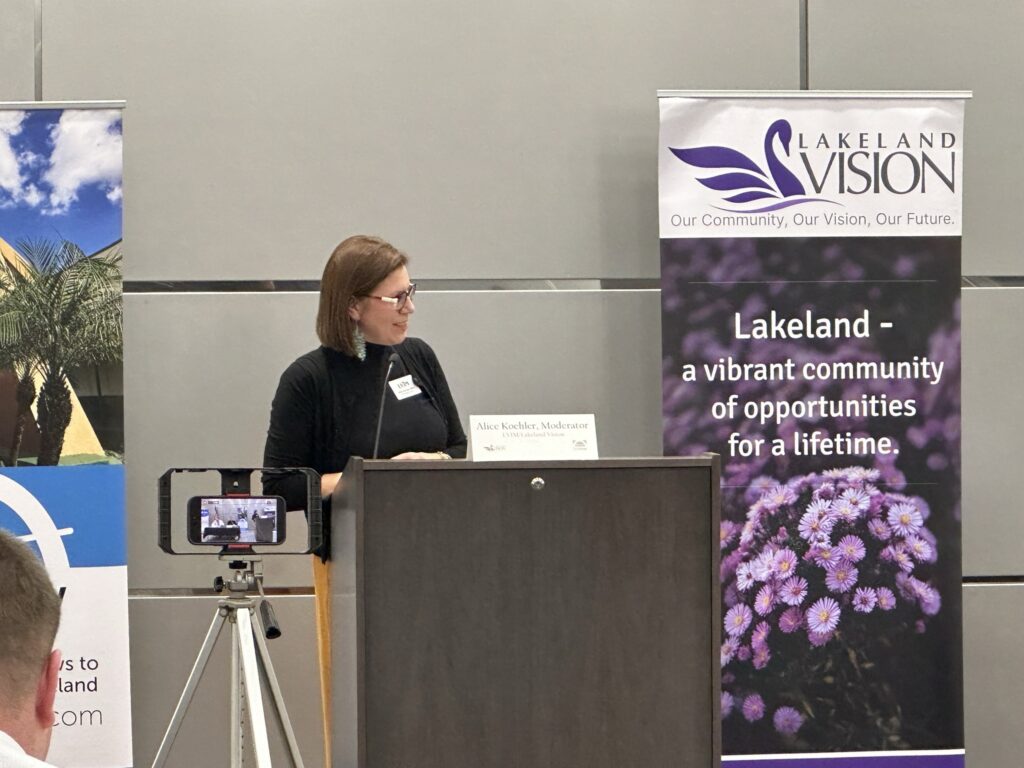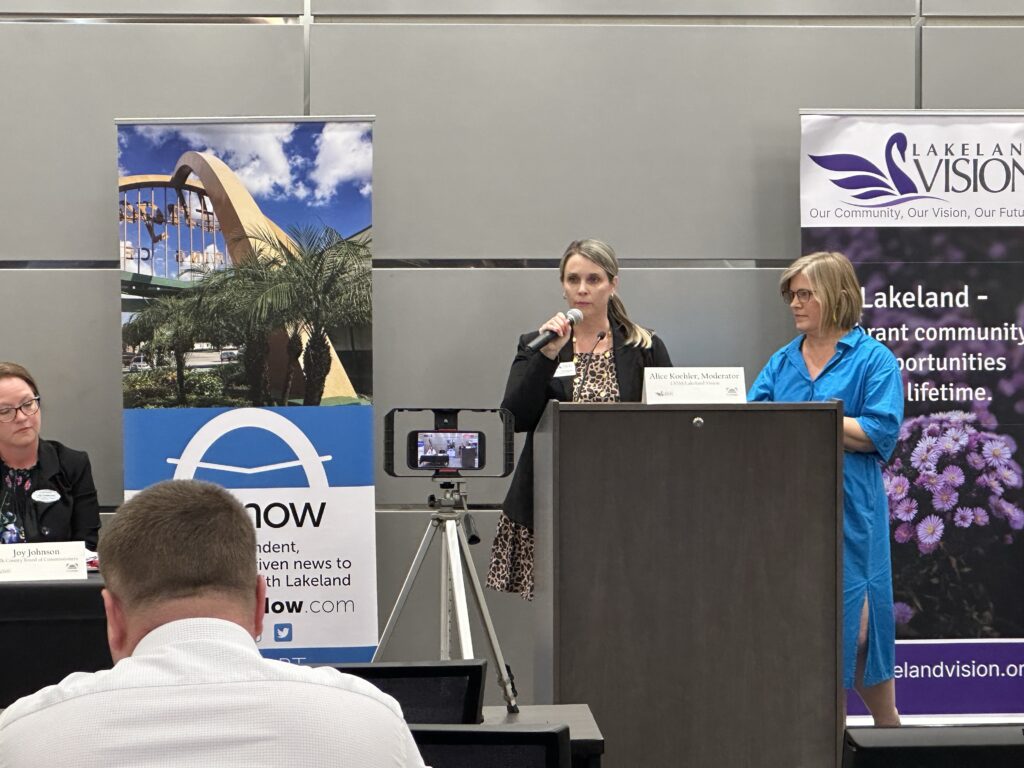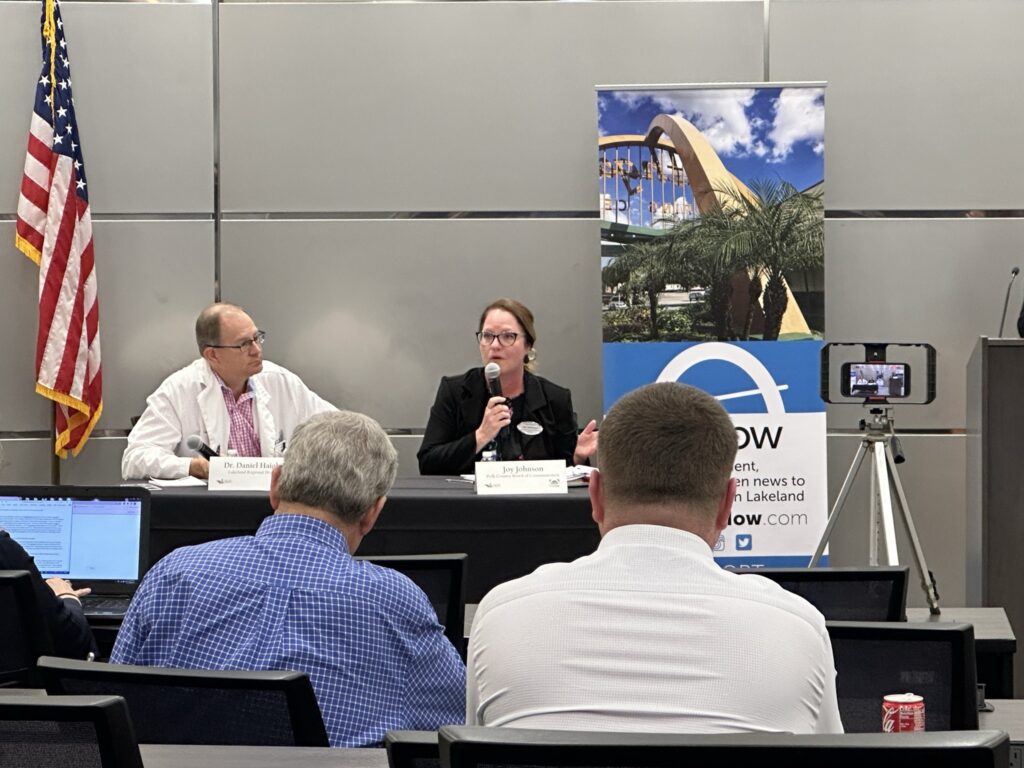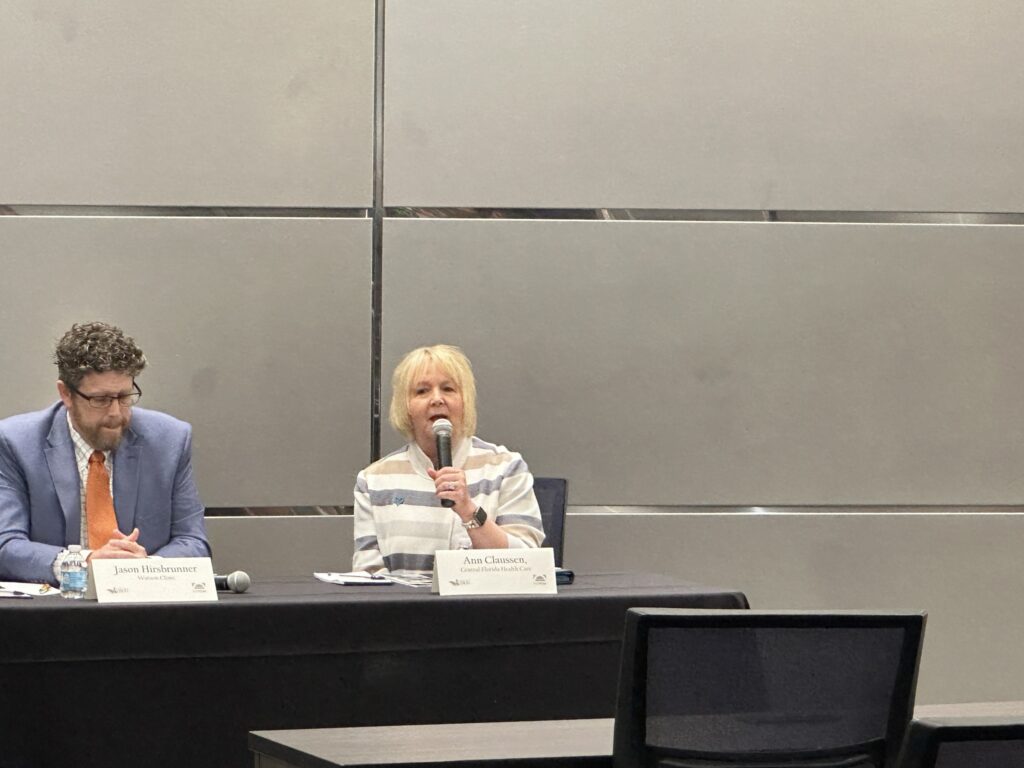Access and Population Growth Emerge as Top Challenges at Forum
by PAUL CATALA
During a recent forum on healthcare issues affecting Lakeland and Polk County, key players in the health community came together to share insight and perspective.


About 80 guests attended “Let’s Talk Lkld: Health Care” on March 26 in the Hollis Cancer Center Auditorium in North Lakeland to learn about the state of Polk County healthcare, its unique challenges, and steps for the future.
Lakeland Volunteers in Medicine President and CEO Alice Koehler moderated the discussion among the panelists: Dr. Daniel Haight, Lakeland Regional Health’s vice president of community health; Joy Johnson, Polk County’s Health & Human Services Administrator; Jason Hirsbrunner, Watson Clinic CEO; and Ann Claussen, Central Florida Health Care CEO.
The free public forum, presented by LkldNow and Lakeland Vision, focused on offering advice and guidance on navigating the healthcare landscape in and across Polk County while also discussing some of the challenges organizations and medical facilities face in providing healthcare to residents.
Panelists cited population growth and access as one of the recurring challenges for the medical community.
Claussen said finding the right workforce, providers and clinical staff to support health centers has been a concern for the 15 Central Florida Health Care centers in Polk, Highlands and Hardee counties.


Hirsbrunner said that as Polk county’s population has grown “exponentially,” access to healthcare has become more difficult.
“The ability to keep up with that from a provider standpoint has been very difficult,” he explained. “Just being able to keep up with the demand and make sure we are still providing the level of access and recruiting providers to Lakeland continues to cause trouble.”
Johnson said population growth has created a number of challenges across the board. “Healthcare is competing with people’s other basic needs. With constant changes in the population … you’ve got a lot of new residents just trying to figure out the resources, and it can be very difficult to navigate.”




Koehler mentioned that a 2022 Community Health Assessment update reported that 24 percent of Polk County residents said they live in poor to fair health.
“That means 76 percent think they are living in good or excellent health, and the data does not support that,” Haight said. “This is one of our problems. We have to raise awareness, but then we have to empower people.”
He cited obesity, high blood pressure, the number of strokes, and health disparities, saying people are optimistic about their health, but “I think it’s time for reality.”
Hirsbrunner said people wait until there’s a catastrophe before seeking healthcare, and once that threshold is past, it’s harder to recover and live with the outcome.
“We are heavily trying to ensure that we have enough capacity in our primary care in order to meet those patients,” he said, adding that Watson Clinic is working to make sure there are no barriers to primary care. “We want to establish a provider and then really begin to work on those underlying concerns.”
Koehler also addressed immigration and healthcare, referring to the 2023 ruling that requires hospitals to ask patients their immigration statuses, and asked for panelists’ thoughts on it.
“Whenever there is an emergent condition, we take care of patients regardless of economic status, social status, immigration status,” Haight responded.
“We’re there to take care of people in emergent situations, and that’s the bottom line. We want all patients to feel safe in obtaining healthcare,” he said, adding that patients are asked their statuses but they can decline to answer.
Other topics addressed at the healthcare forum included:
- Access
- Income limits for healthcare and indigent care
- Behavioral health
- Healthcare navigators
Panelists said their organizations are making headway in expanding their care and making it more accessible.
Claussen said the half-cent sales tax has helped Central Florida Health Care expand its brick-and-mortar facilities to keep up with needs.
“We’ve been able to add several health centers in Polk County and that’s been a benefit to be very proactive and hire specialty care,” she said.
Hirsbrunner said Watson Clinic has worked hard in the past two years to reduce the amount of red tape it takes for patients to access care.
When asked for their top tip to help people navigate the Polk County healthcare system, the panelists emphasized patient responsibility.
“When done right, healthcare is a relationship between a patient and provider,” Hirsbrunner said. “And in any relationship, it takes two. So my number one tip is to be a part of that relationship; be involved with that relationship, ask questions, and be an advocate for yourself.”
Haight added to that, saying patients need to ask their doctors three main questions:
- What’s my main problem?
- What do I need to do about it?
- Why is this important to me?
“Ask those questions, and make sure you’re satisfied with the answers. If not, go elsewhere,” he said.
Claussen said she’d like to see more people being more proactive in preventive healthcare. “That’s key to what we are all trying to do … so we can catch things early on.”
Johnson agreed.
“Don’t wait, get preventive checkups,” she said. “Make time for yourself because you can prevent something more serious from getting worse.”
